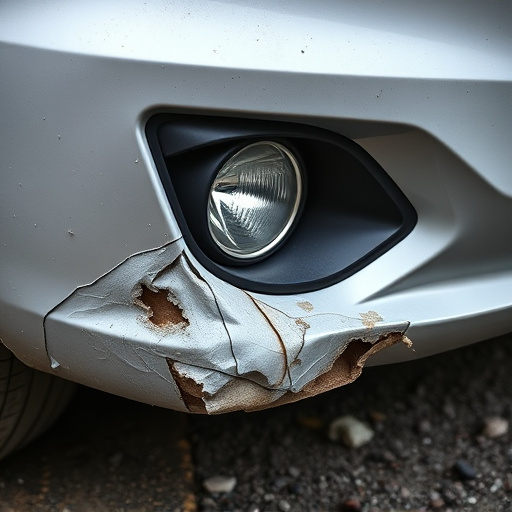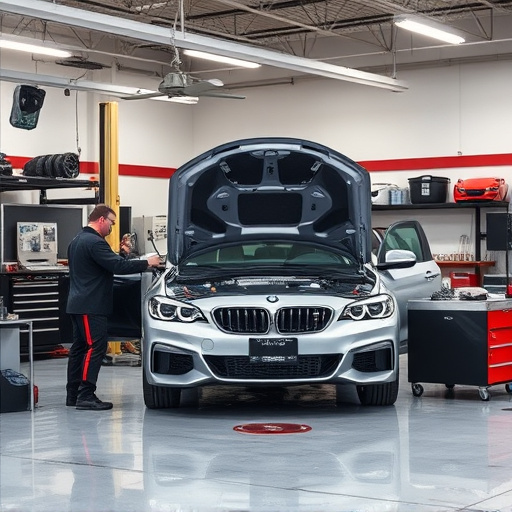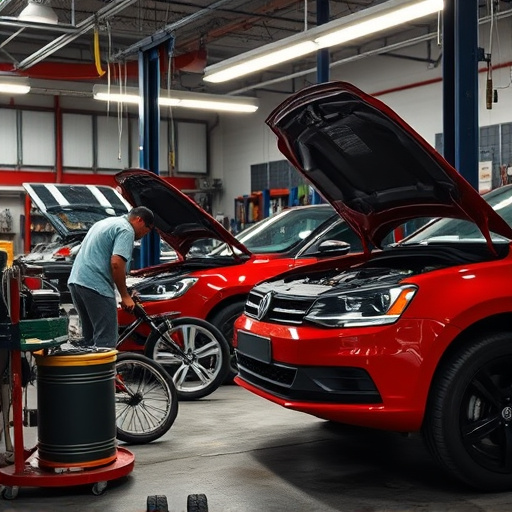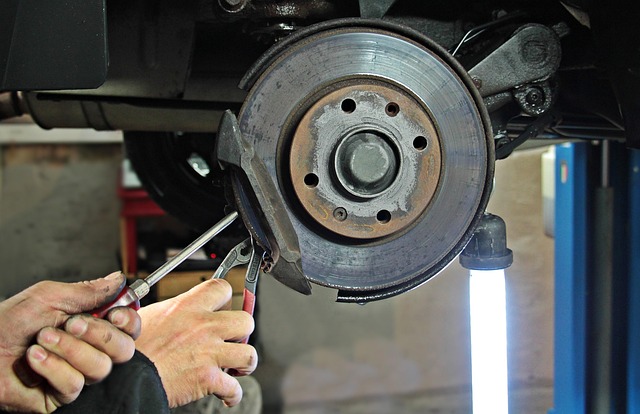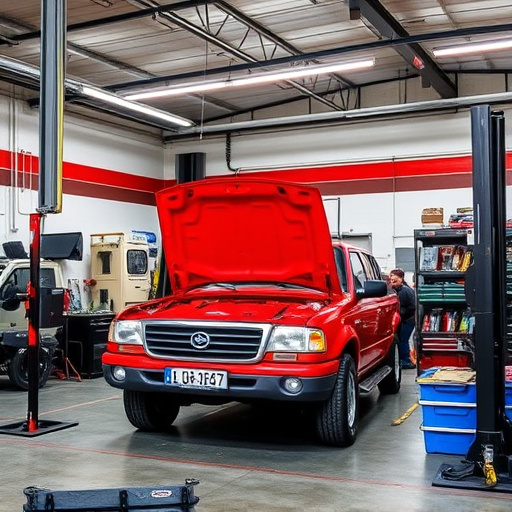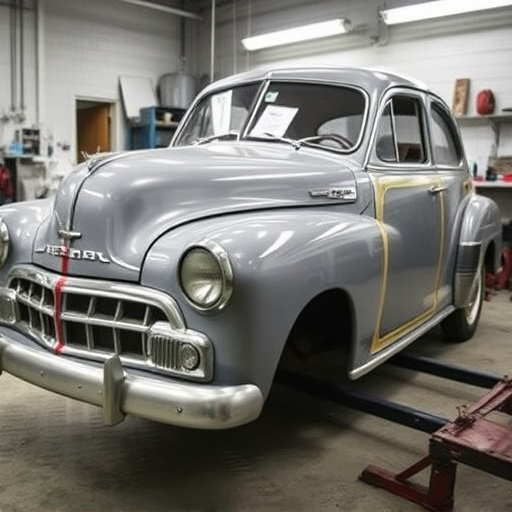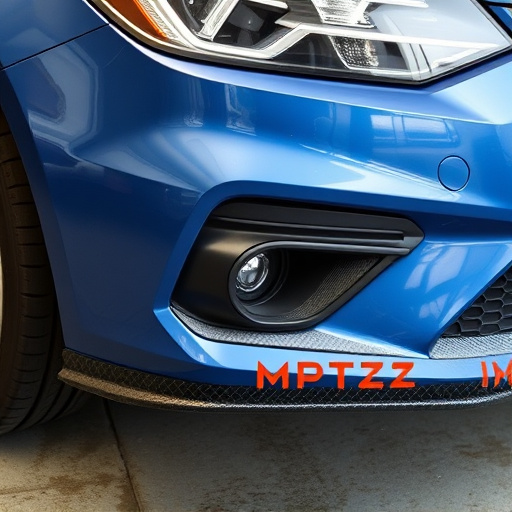Advanced computerized diagnostics repair tools leverage AI algorithms to accurately identify vehicle issues from data analysis, surpassing traditional methods. This technology revolutionizes repairs, especially for bodywork and collision damage, by offering precise measurements, enhancing inspection accuracy, reducing repair times, and boosting customer satisfaction through transparent updates. Integrating these systems in modern repair shops transforms quality control, fostering trust and strong client relationships across diverse maintenance needs.
The evolution of computerized diagnostics tools is transforming the landscape of automotive repairs. This article delves into the next steps and advancements in computerized diagnostics repair, offering a glimpse into the future of efficient, precise, and customer-centric service. From understanding advanced diagnostic tools to implementing AI for streamlined processes, these innovations ensure quality control and enhance overall customer satisfaction. Explore how modern repair shops are leveraging technology to stay ahead in the industry.
- Understanding Advanced Computerized Diagnostics Tools
- Implementing Efficient Repair Processes Using AI
- Ensuring Quality Control and Customer Satisfaction in Modern Repair Shops
Understanding Advanced Computerized Diagnostics Tools

Advanced computerized diagnostics tools are revolutionizing the automotive repair industry, offering a more precise and efficient approach to identifying and resolving vehicle issues. These sophisticated systems utilize cutting-edge technology to analyze complex data from a car’s computer systems, sensors, and networks, providing an in-depth understanding of its internal workings. By interpreting this data, technicians can quickly diagnose even the most intricate problems, moving beyond traditional methods that often relied on subjective assessments.
These tools are particularly valuable for specialized repairs like car bodywork services and collision damage repair, as they enable mechanics to accurately detect hidden issues within a vehicle’s structure or electronics. For instance, in fender repair, a computerized diagnostics scan can pinpoint exact measurements and identify areas of impact, ensuring precise restoration and seamless integration with the vehicle’s overall system. This level of precision not only expedites the repair process but also enhances the quality of final outcomes.
Implementing Efficient Repair Processes Using AI

Implementing Efficient Repair Processes Using AI marks a significant step forward in the evolution of computerized diagnostics repair. By leveraging advanced algorithms and machine learning capabilities, AI systems can analyze vast amounts of data from vehicle sensors and cameras, enabling faster and more accurate assessments of damage. This not only streamlines the initial inspection process but also aids technicians in identifying complex issues that might be missed by traditional methods.
Moreover, AI integration facilitates precise estimation of repair costs and timeframes, enhancing customer satisfaction. In areas like paintless dent repair, where aesthetics are paramount, AI-driven systems can guide technicians through intricate processes, ensuring consistent, high-quality results. This technology also plays a pivotal role in vehicle collision repair by facilitating faster turnaround times, thereby reducing downtime for both customers and fleet managers. Ultimately, the efficient repair processes enabled by AI contribute to a more robust and responsive computerized diagnostics repair ecosystem, catering to diverse needs across various vehicle types, from routine maintenance to extensive collision damage.
Ensuring Quality Control and Customer Satisfaction in Modern Repair Shops

In modern repair shops, ensuring quality control and customer satisfaction goes hand in hand with adopting advanced technologies like computerized diagnostics repair. By integrating this innovative system, workshops can deliver more precise and efficient services. Computerized diagnostics tools enable technicians to accurately identify issues within a vehicle’s complex systems, leading to faster and more effective repairs. This, in turn, enhances customer trust by demonstrating expertise and minimizing the risk of further damage.
Moreover, these advanced diagnostic capabilities play a pivotal role in managing expectations. Customers can receive transparent updates on their car’s condition, including detailed reports on identified problems and proposed solutions. This level of transparency builds strong relationships based on mutual understanding and ensures that clients remain satisfied with the entire repair process, from dent removal to comprehensive car body restoration and collision damage repair.
Computerized diagnostics repair is transforming the automotive industry by streamlining processes, enhancing efficiency, and ensuring superior quality control. By leveraging advanced tools like AI and machine learning, repair shops can navigate complex vehicle issues with precision, reduce downtime, and elevate customer satisfaction levels. As these technologies continue to evolve, adopting efficient repair processes powered by AI will become a competitive necessity for modern workshops aiming to stay ahead in the market.
